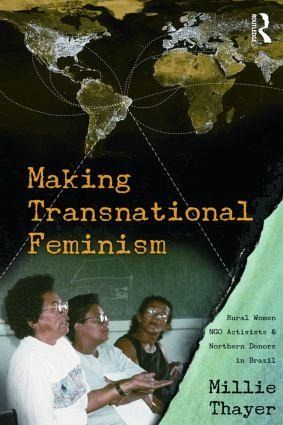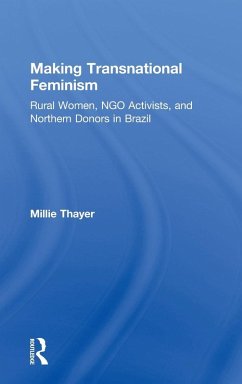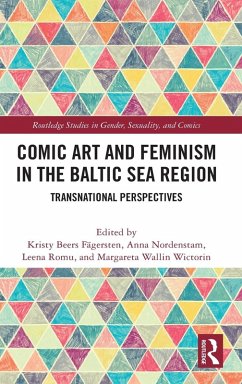
Making Transnational Feminism
Rural Women, NGO Activists, and Northern Donors in Brazil
Versandkostenfrei!
Versandfertig in 1-2 Wochen
52,99 €
inkl. MwSt.
Weitere Ausgaben:

PAYBACK Punkte
26 °P sammeln!
This ethnographic study examines the transnational relations among feminist movements at the end of the twentieth century, exploring two differently situated women's organizations in the Northeast Brazilian state of Pernambuco. The conventional narrative of globalization tells the story of inexorable forces beyond the capacity of individuals to mute or transcend. But this study tells a different story, one of social actors purposefully weaving cross-border relationships. From this vantage point, global social forces are not immaculately conceived. Instead, they are constituted by human actors ...
This ethnographic study examines the transnational relations among feminist movements at the end of the twentieth century, exploring two differently situated women's organizations in the Northeast Brazilian state of Pernambuco. The conventional narrative of globalization tells the story of inexorable forces beyond the capacity of individuals to mute or transcend. But this study tells a different story, one of social actors purposefully weaving cross-border relationships. From this vantage point, global social forces are not immaculately conceived. Instead, they are constituted by human actors with their own interests and identities, located in particular social contexts. Making Transnational Feminism takes what some have called "global civil society" as its object, moving beyond both dire predictions and euphoric celebrations to understand how transnational political relationships are constructed and sustained across social and geographical divides. It also provides a compelling case study for use in advanced undergraduate and graduate courses in globalization, gender studies, and social movements.














